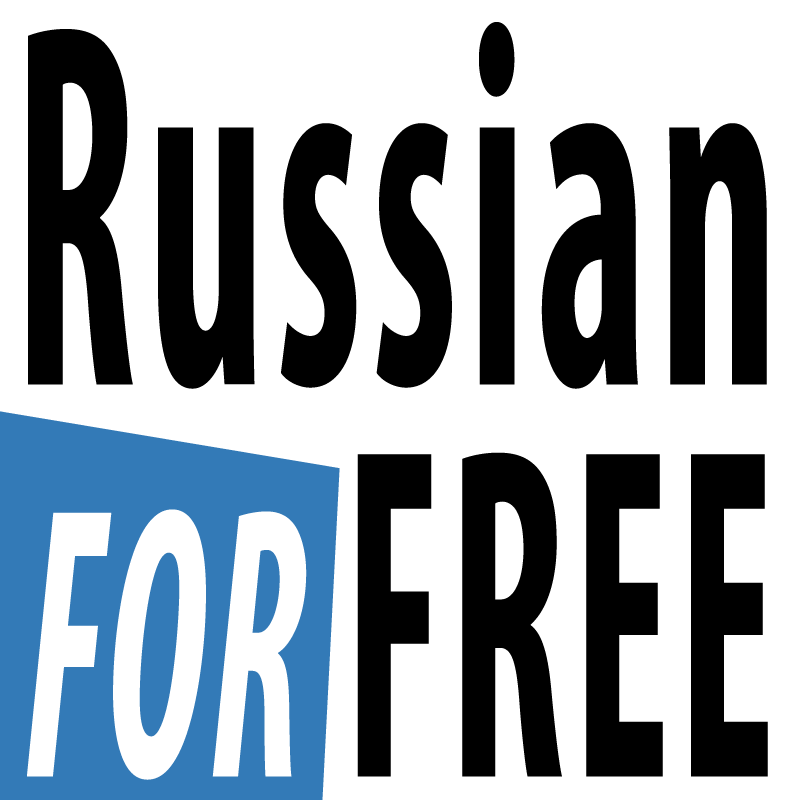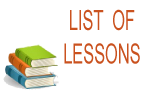
Russian course
Basic Russian for beginners
Lesson 8:
I don't know who my best friend is
In this lesson you will learn:
- all Russian possessive pronouns
- how to write Russian adjectives for any gender

Useful phrase in Russian
Listen and repeat the following sentence:
Я не зна́ю, кто мой лу́чший друг
ya nye zná-yu kto moj Lúch-shij druk
I don't know who my best friend is
How to read Russian: After 8 lessons you already know how to say many things in Russian. But, can you read Russian? If you still can't, we recommend our course "how to read in Russian". You can click here to go to lesson 1

Russian vocabulary
Read, listen and repeat the basic vocabulary of this lesson:
English
Russian
Pronunciation
who
кто
kto
already
уже́
u-zhé
mother / father
мать / отец
mat' / a-tyéts
parents
роди́тели
ra-dí-tye-li
daughter / son
дочь / сын
doch / syn
sister / brother
сестра́ / брат
syes-trá / brat
friend (female) / friend (male)
подру́га / друг
druk / pa-drú-ga
friends
друзья́
druz'-yá
better (adv.)
лу́чше
Lút-she
best (adj.)
лу́чший
Lút-shij
big
большо́й
bal'-shój
small
ма́ленький
má-lyen'-kij

Dialogues in Russian
These dialogues will help you memorise this lesson's vocabulary:
Dialogue 1
English
Russian
Pronunciation
Masha, excuse me, Do you know who he (is)?
Ма́ша, извини́, ты зна́ешь кто он?
má-sha, is-vi-ní, ty zná-yesh kto on?
Of course I know. He (is) my father.
Коне́чно, зна́ю. Он мой оте́ц.
ka-nyésh-na, zná-yu. on moj a-tyéts.
Oh, it means that she (is) your mother.
О, э́то зна́чит, что она́ твоя́ мать.
o, é-ta zná-chit, shto a-ná tva-yá mat'.
Yes, They (are) my parents.
Да, они́ мои́ роди́тели.
da, a-ní ma-í ra-dí-tye-li.
And who (are) they)? (Are) they your friends?
А кто они́? Они́ твои́ друзья́?
A kto a-ní? a-ní tva-í druz'-yá?
They are my sister, her best female friend and her best male friend.
Э́то моя́ сестра́, её лу́чшая подру́га и её лу́чший друг.
é-ta ma-yá syes-trá, yi-yó Lút-sha-ya pa-drú-ga i yi-yó Lút-shij druk.
Dialogue 2
English
Russian
Pronunciation
What (is) better? A big pizza or a small pizza?
Что лу́чше? Больша́я пи́цца или ма́ленькая пи́цца?
shto Lút-she? bal-shá-ya pí-tsa i-li má-lyen-ka-ya pí-tsa?
I like a big pizza when I want to watch a movie.
Мне нра́вится больша́я пи́цца, когда́ я хочу́ смотре́ть фильм.
mnye nrá-vit-sa bal-shá-ya pí-tsa kag-dá ya ha-chú sma-tryét' film.
And better, when the movie (is) interesting, right?
И лу́чше, когда́ фильм интере́сный, да?
i Lút-she, kag-dá film in-tye-ryés-nij, da?
Of course. Because when the movie is not interesting, then better a small pizza.
Коне́чно. Потому́ что, когда́ фильм неинтере́сный, то лу́чше ма́ленькая пи́цца.
ka-nyésh-na. pa-ta-mú shta, kag-dá film nye-in-tye-riyés-nyj, to Lút-she má-lien-ka-ya pí-tsa.
Dialogue 3
English
Russian
Pronunciation
My parents want to go to the cinema, but I don't want to.
Мои́ роди́тели хотя́т идти́ в кино́, но я не хоч́у.
ma-í ra-dí-tye-li ha-tyát it-tí f ki-nó, no ya nye ha-chú.
ou don't want, but you go. Why?
Ты не хо́чешь, но ты идёшь. Почему́?
ty nye hó-chyesh, no ty i-dyósh. pa-chye-mú?
Because I (am) their daughter and I always do what my parents want.
Потому́ что я их дочь и я всегда́ де́лаю то, что мои́ роди́тели хотя́т.
pa-ta-mú shta ya ih doch i ya vsyeg-dá dyé-La-yu to shto ma-í ra-dí-tye-li ha-tyát.
Pedro never does what his parents want.
Пе́дро никогда́ не де́лает то, что его́ роди́тели хотя́т.
pé-dro ni-kag-dá nye dyé-la-yet to, shto yi-vó ra-dí-tye-li ha-tyát.
That (is) because he (is) a bad son.
Э́то потому́ что он нехоро́ший сын.
é-ta pa-ta-mú shta on nye-ha-ró-shij syn.
But his best friend always says that he (is) a good friend.
Но его́ лу́чший друг всегда́ говори́т что, он хоро́ший друг.
no yi-vó lút-shij druk vsyeg-dá ga-va-rít shto, on ha-ró-shij druk.
Do you want to learn Russian with the best courses and books?
We recommend you the best Russian course, with 150 videos and personal tutor.
If you love reading, have a look at these books with stories in easy Russian with audio.
If you want to practice your Russian, here you can find exercise books, with key and grammar tables.

Russian grammar
Read the following grammar explanations for this lesson:
The possessive pronouns in Russian
Here you will find complete a list with the Russian possessive pronouns, sorted in two groups:
- Only one thing is possessed (book) which is possessed by one person (my book) or many people (our book).
- Many things are possessed (books) which are possessed by one person (my books) or many people (our books).
one thing possessed
мой / моя́ / моё = my
твой / твоя́ / твоё = your
его = his
её = her
наш / на́ша / на́ше = our
ваш / ва́ша / ва́ше = your
их = their
Examples for "one thing possessed"
Э́то мой фильм = This is my movie
Э́то моя́ кни́га = This is my book
Э́то моё сокро́вище = This is my treasure
Э́то её кни́га = This is her book
Э́то его́ кни́га = This is his book
Э́то наш оте́ц = This is our father
Э́то на́ша дочь = This is our daughter
Э́то на́ше сокро́вище = This is our treasure
Э́то их оте́ц = This is their father
Э́то их дочь = This is their daughter
More than one thing possessed
мои́ = my
твои́ = your
его́ = his
её = her
на́ши = our
ва́ши = your
их = their
Examples for "more than one thing possessed":
Э́то мои́ фи́льмы = These are my movies
Э́то мои́ кни́ги = These are my books
Э́то мои́ сокро́вища = These are my treasures
Э́то её кни́ги = These are her books
Э́то его́ кни́ги = These are his books
Э́то на́ши отцы́ = These are our fathers
Э́то на́ши до́чери = These are our daughters
Э́то на́ши сокро́вища = These are our treasures
Э́то их отцы́ = These are their fathers
Э́то их до́чери = These are their daughters
The adjectives in Russian
In lesson 1 we told you that nouns in Russian have gender (masculine, feminine or neuter). Adjectives in Russian also have gender, which means that an adjective has a different ending for each gender. Have a look at these examples:
Masculine
- Мой хоро́ший / люби́мый / большо́й магази́н = My good / favourite / big shop
Feminine
- Моя́ хоро́шая / люби́мая / больша́я кни́га = My good / favourite / big book
Neuter
- Моё хоро́шее / люби́мое / большо́е сокро́вище = My good / favourite / big treasure
Pural
- Мои́ хоро́шие / люби́мые / больши́е магази́ны = My good / favourite / big shops

Test
Check how much you have learnt in this lesson:
This Russian course will always be free. Please share it.
When you share our website, you're helping us continue with our project: developing free Russian courses for everyone. Please, invest some seconds of your time in sharing us. Thank you.
|
Contact us Site map Terms of use Privacy policy Shop - Russian school Copyright © www.russianforfree.com All rights reserved. |


